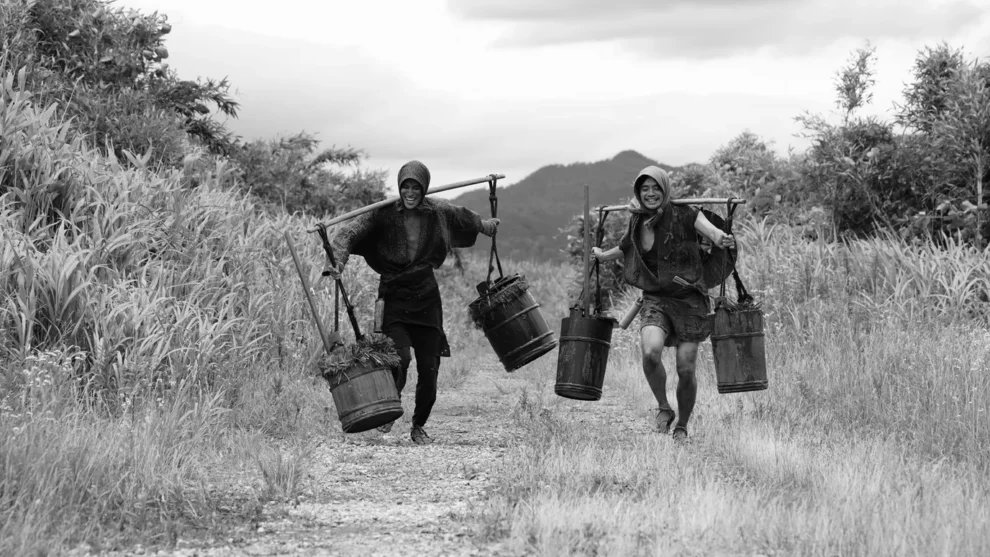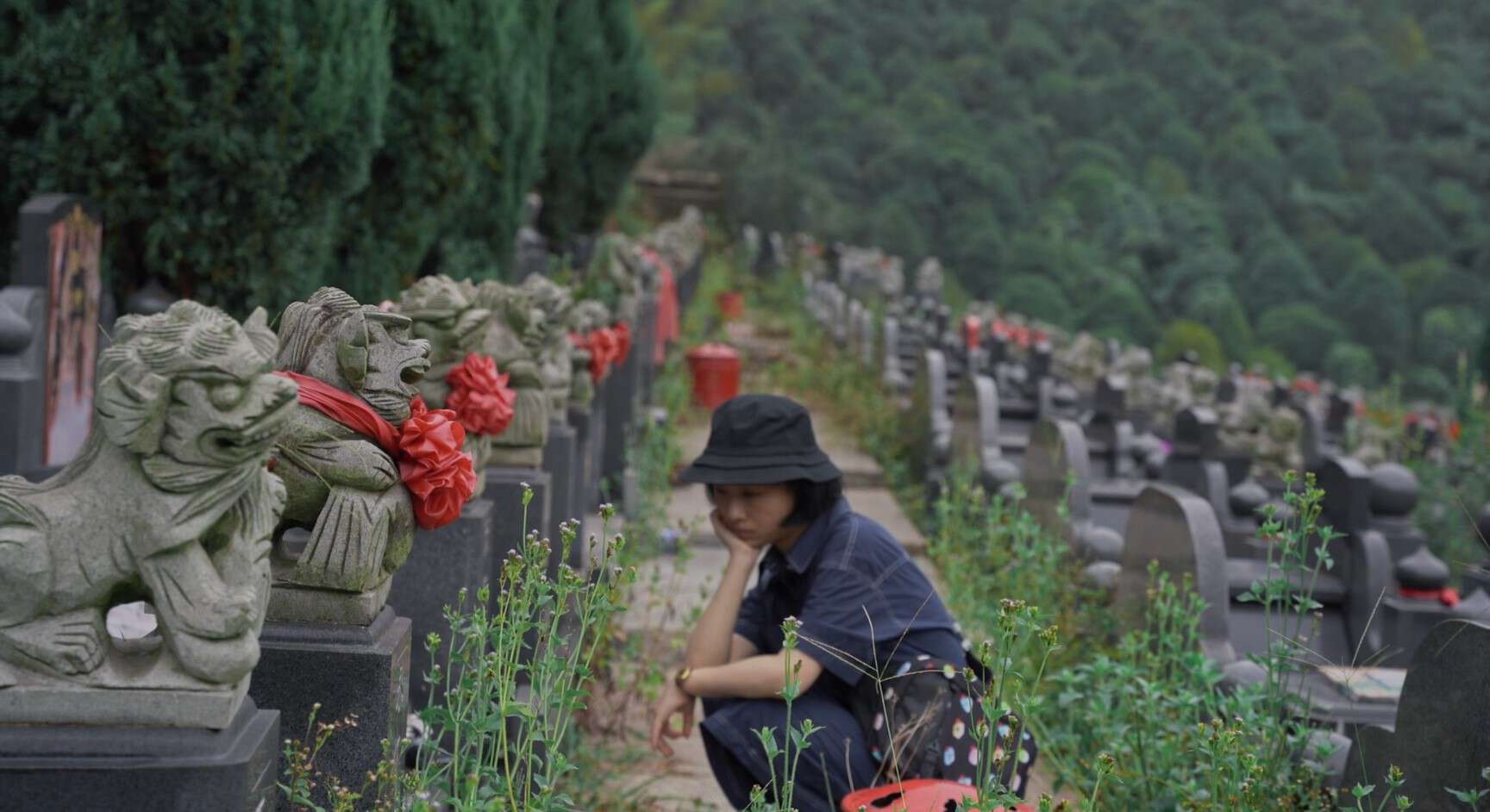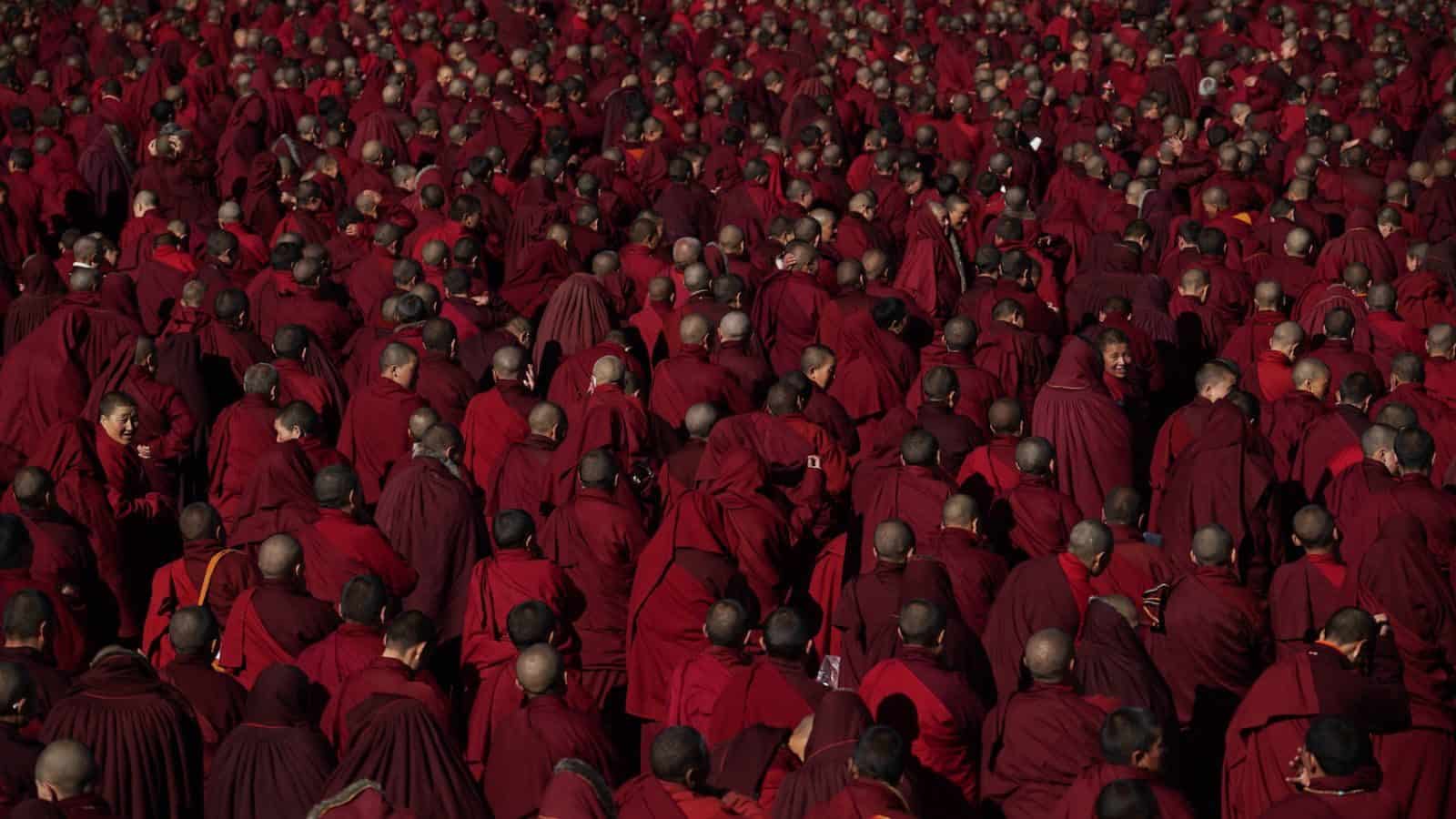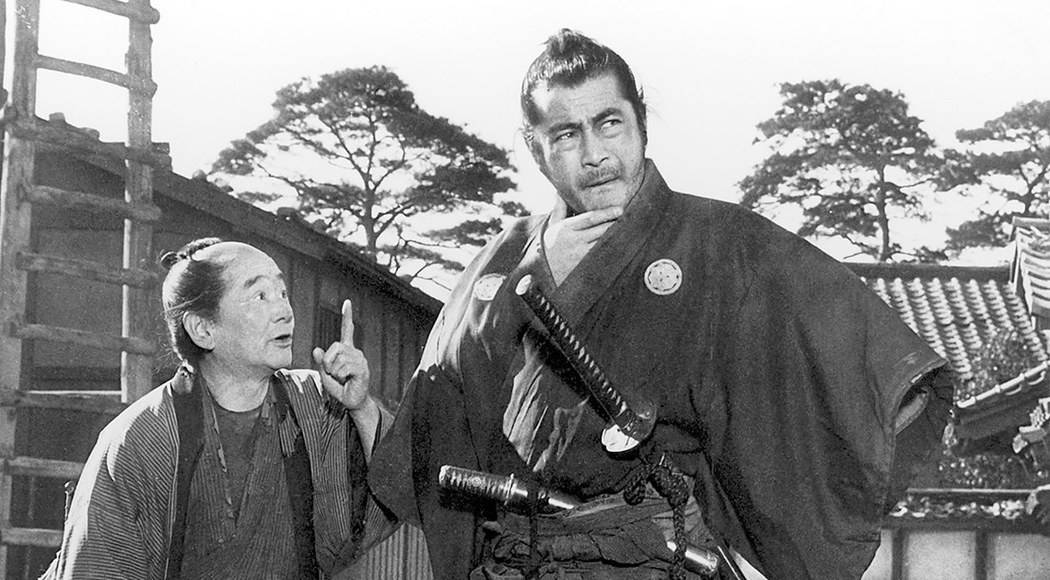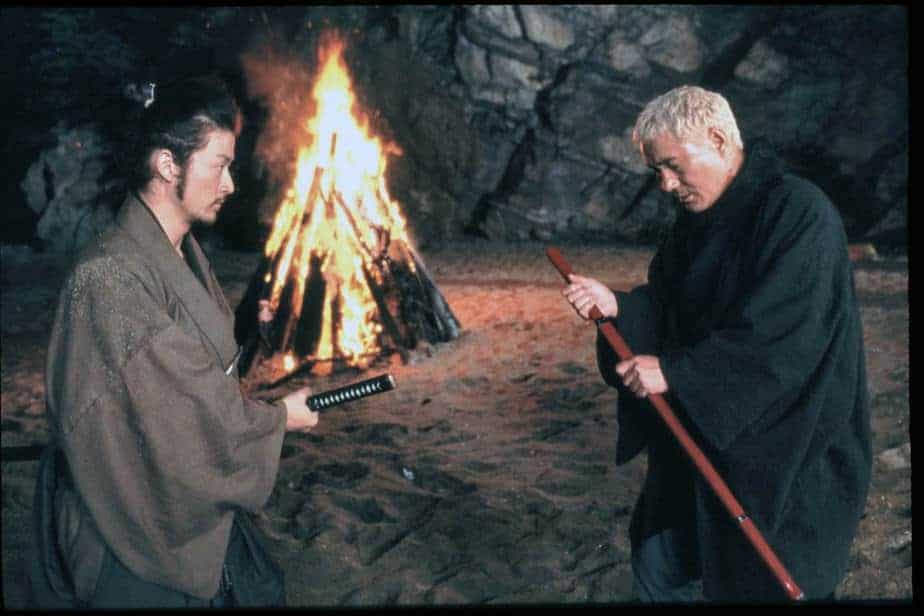When it comes to jidaigeki, most people's minds conjure images of honour-bound samurai and quaint Edo-era villages. Evidently, director Junji Sakamoto envisions shit-covered peasants and social injustice. With his latest film, “Okiku and the World”, the filmmaker presents a different vision of Japan's Edo-era than the one we're used to seeing.
Okiku and the World screened at International Film Festival Rotterdam
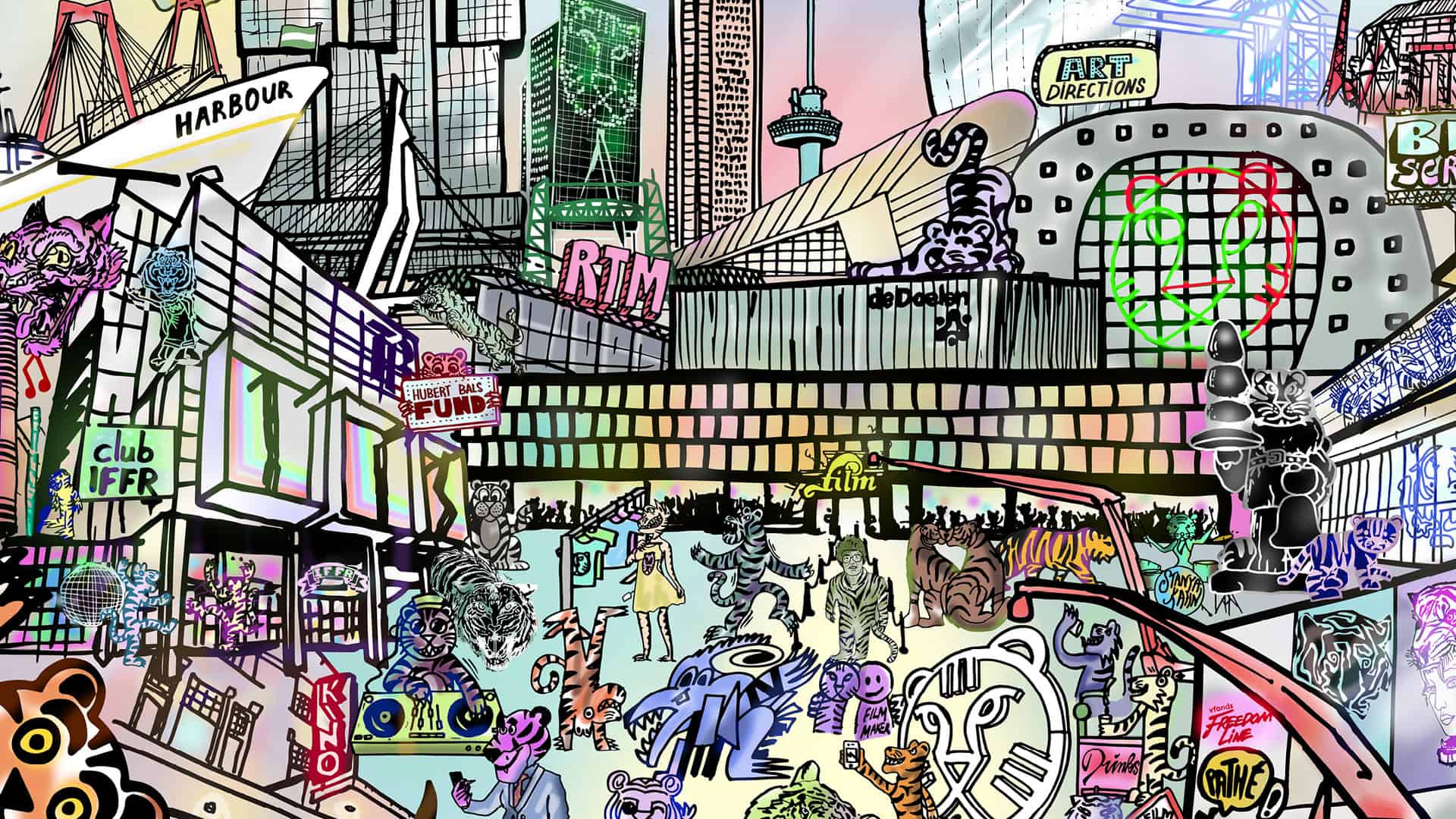
Beginning in the late summer of 1858, we follow Yasuke (Sosuke Ikematsu) and Chuji (Kanichiro), two vagrants who deal in an oddly valuable commodity that Edo's citizens provide in abundance – human excrement. The pair trek around the city, collecting shit and selling it to farmers as fertiliser. The two manage to find humour in this lowly existence, but that doesn't free them from poverty. In one of the tenements where Chuji collects manure, a woman named Okiku (Haru Kuroki) is struck by a tragedy that changes her life permanently.
Within the first few frames of “Okiku and the World”, it's made clear that Junji Sakamoto has no interest in romanticising Japan's Edo-era. Whereas many filmmakers strive to capture the beauty, elegance, and charming day-to-day life of this period in the country's history, Sakamoto has literal rivers of shit running through the streets of Edo. Mercifully, the pristine black-and-white cinematography masks the film's more revolting imagery – well, for the most part. At the end of each narrative chapter, we're treated to a brief moment of color, which highlights both the gorgeous and the gross.
The narrative is littered with social commentary, most of which concerns class. Sakamoto isn't exactly subtle with his criticisms, but nor does he need to be. After all, Chuji and Yasuke are literally paying the rich for their faeces. The director makes sure to distinguish the living conditions between the entitled samurai and Edo's poverty-stricken citizens. While one samurai ambushes Yasuke with the idea that his shit is more valuable because he eats better, Okiku's neighbors awake one morning to find that their shared outhouse has overflown into the street.
This focus on class divisions echoes in the film's central romance, Okiku being the daughter of an outcast samurai and Chuji, an excrement-peddling peasant. The relationship between the couple blossoms steadily, with Chuji, in particular, feeling his social position is unworthy of Okiku. However, despite having limited scenes together, both characters share a noticeable intimacy. The development of this relationship marks one of the film's more heart-warming aspects, especially given the otherwise bleak existence that other figures endure.
Check the interview of the director
Despite featuring what are, in truth, quite tragic characters, “Okiku and the World” carries a strong sense of wit. Sosuke Ikematsu's Yasuke is the closest thing to comic relief, the vagrant jibing with Chuji as he confidently wades through an unfortunate existence. For a film with such a distinct focus on human waste, there is, almost inevitably, an awful lot of toilet humour, which you'll already know if you love or loathe. Sakamoto's screenplay is also stuffed with black comedy; the elderly Magohichi, played here by the always wonderful Renji Ishibashi, gleefully reports that he intends to use his remaining strength to build his own coffin while he still has the chance.
Morbid in moments but consistently witty, Junji Sakamoto's shit-filled yet soulful jidaigeki presents an unorthodox depiction of Edo-era Japan. A beautifully shot film with a tender story at its heart, “Okiku and the World” is a unique period drama that's well worth exploring – no matter how much shit it throws at you.


